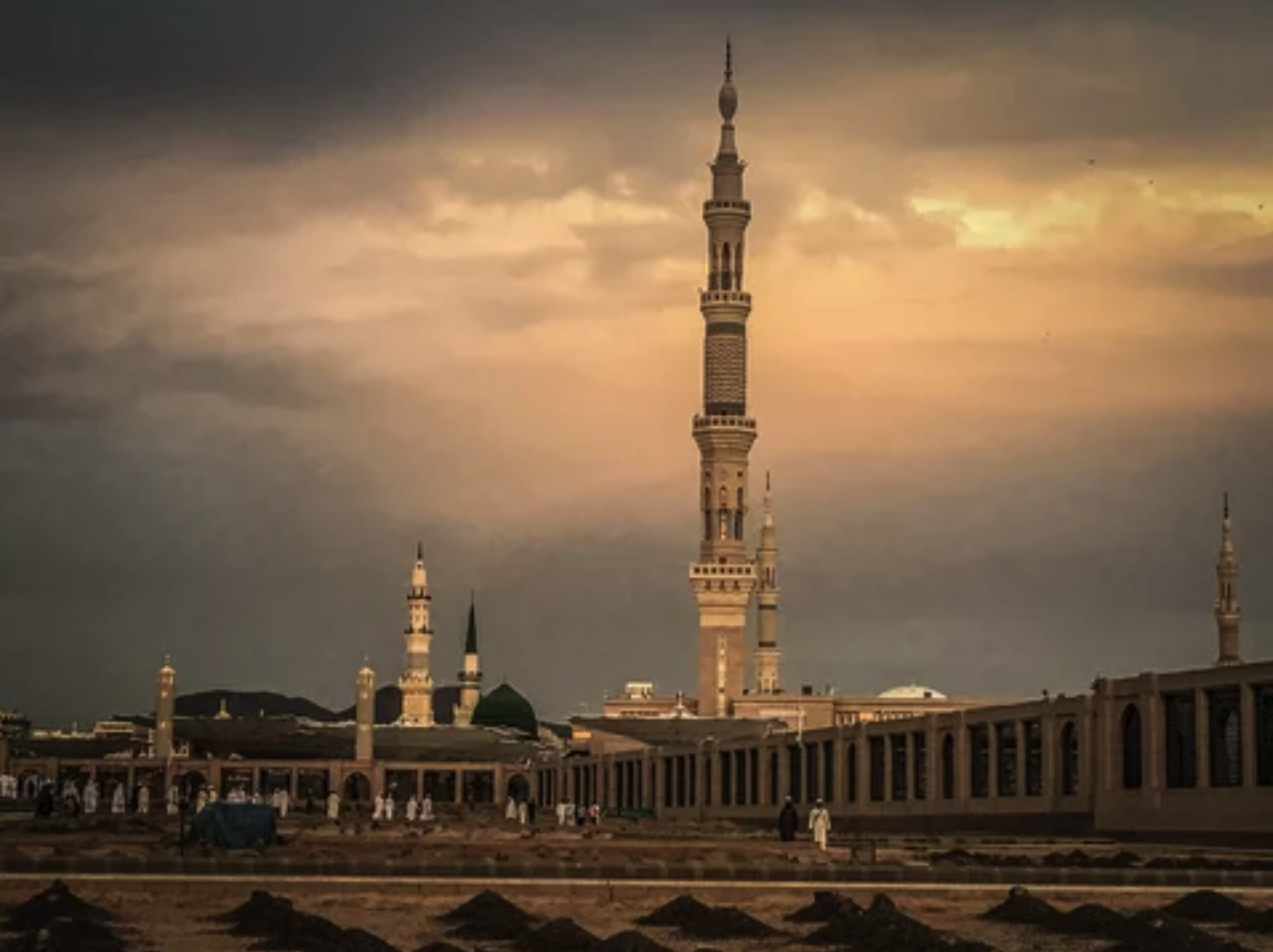Help A Sister (Or Brother) Out: Another Reason Bilal is Our Master

The Prophet ﷺ wondered where Bilal ibn Rabah could be. It was time for the dawn prayer, and Bilal, the first muaddhin (caller to prayer), his beloved Companion whose footsteps were heard in paradise by the Prophet ﷺ, was inexplicably late.
When Bilal finally arrived, the Prophet ﷺ asked him, “What kept you?”
Bilal said, “I passed by Fāṭima, and she was grinding grain and the child was weeping, so I said to her, ‘If you wish, I can take the grinder, or if you wish, I can take care of the child for you.’ She said, ‘I am kinder to my son than you.’ That is what detained me from you.’”1
'Umar ibn Khattab said of Bilal, "Abu Bakr is our master and he freed our master.” Beyond the oft-repeated narrative of Bilal as the liberated slave, and as the staunchest believer in the oneness of God under extreme duress, this incident shows another reason why he is our master—his character.
Like all the Companions, the foundation of his life was the prayer. He yearned for it, and would not delay or miss it without excuse. Yet, lest we envision the Companions as ibadah machines going back and forth between the mosque, seeing nothing other than their ritual acts of worship, it was the spiritual character of prayer that infused every facet of their lives. It taught them the primacy of the needs of their fellow man.
This was a lesson taught to them numerous times by their Master, Rasulallah ﷺ, such as when he was approached by a man requiring his assistance after the Iqaama (second call to prayer) had been given. The Messenger of God ﷺ answered the man at length until he was satisfied, even though it took so long that some of the Companions, waiting to pray, began to doze off! 2
Put ourselves in Bilal’s position, hastening to prayer, or just hastening anywhere. We have things to do, appointments to keep, people to see. Bilal would not only be naturally hastening to prayer because of his position as muaddhin, but because it was prayer with Rasulallah, his Beloved ﷺ—nothing in the world was sweeter and more joyous than that. Yet when he saw the Prophet’s daughter, Fatimah (may Allah be pleased with her) occupied with both grinding grain and caring for the children, his noble character prompted him to naturally offer a helping hand.
We’ve been there before too, seeing a mother (or occasionally a father) struggling with their children while trying to perform some other task, like navigating through an aisle in a grocery store, boarding an airplane, eating at a restaurant, or attending the mosque. For many, we see this even in our own homes, as we rush out to hang out with our friends, or go to the mosque. But it need not be a parent; surely we’ve seen any person, just struggling, with something, feeling overwhelmed. Do we offer our help?
Bilal did. No doubt, his action was testament to his immense love for the Ahl-ul-Bayt (“Love the family of my house because of your love for me” [Tirmidhi]) — a love which we tend to have a collective amnesia about, outside of perhaps the month of Muharram. But this incident also points to his character, in which assisting others was paramount. It shows his contextual understanding of the different, but complementary, priorities in life.
Ask this question: If I were in Madinah, now, walking through the courtyard of Masjid ul-Nabawi to attend prayer, and happened to glimpse a person in need, toiling away with a crying child, would I even slow down? Now say it was Madinah at the time of the Prophet. Excited and eagerly anticipating praying in the ranks behind him, we would likely whizz by so fast our feet barely touched the ground on the way, out of an imperfect conception of spiritual zeal.
Bilal did something different. That’s why he is our master, and his Master was the Messenger of God ﷺ.
1. As related by Aḥmad: “Bilāl was late for the dawn prayer, so the Prophet (God bless him and give him peace) asked him: ‘What kept you?’ He said: ‘I passed by Fāṭima, and she was grinding grain and the child was weeping, so I said to her: “If you wish, I can take the grinder, of if you wish, I can take care of the child for you.” She said, “I am kinder to my son than you.” That is what detained me from you.’”
2. This can be gleaned for several narrations, such as one where Anas ibn Malik narrates: “I saw the Prophet, after the Iqaama was called for prayer, talking to a man who was standing between him and the Qiblah, he did not stop talking, and I saw some of them getting sleepy from the lengthy standing.” (Tirmidhi)